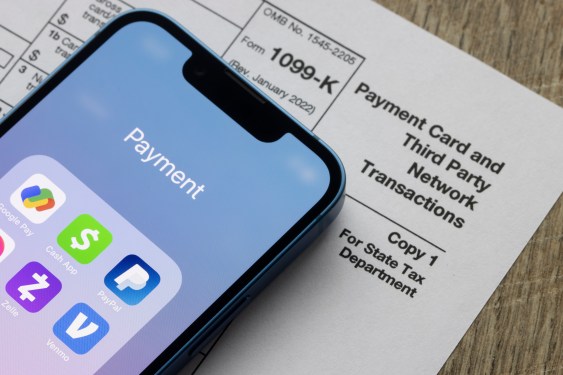In BriefPosted:8:20 AM PST · November 21, 2024Image Credits:hapabapa / Getty ImagesRomain Dillet
Apple Pay, Cash App, PayPal and other apps to be treated more like banksSome digital services look like banks and act like banks, but aren’t banks — meaning they can, for instance, close down your account without notice. Or be difficult to contact when you want to dispute fraud.This is about to change:the U.S. Consumer Financial Protection Bureau (CFPB) has just ruled that all digital services that handle a significant number of transactions should be subject to bank-like supervision. The government agency will gain new powers around incorrect transactions, fraudulent activity, data privacy, and more.
Who Will Be Affected?Quite a few companies, as the CFPB is targeting payment wallets and money transfer apps that handle more than 50 million transactions per year. Which means Apple Pay, Cash App, Google Pay, PayPal, Venmo…While a significant change, the new rule won’t mark the end of crypto scams on social networks as the CFPB has decided to limit its scope to transactions conducted in USD.
How the New Rules Will Work
The new rules aim to give the CFPB greater authority over digital payment services that engage in practices similar to banks. This includes monitoring for fraudulent activity, ensuring accurate transaction records, and safeguarding consumer data.
Incorrect Transactions
Consumers will be able to dispute transactions they believe are incorrect or unauthorized through an online portal provided by the CFPB. The agency will also investigate disputes within 30 days of a transaction being flagged as potentially fraudulent.
Fraudulent Activity
The CFPB will expand its existing fraud detection mechanisms to identify suspicious activity in digital payment networks. This includes monitoring for unusual patterns of transactions and flagging users if they notice any irregularities in their accounts.
Data Privacy
The updated rules will require digital services to maintain consumer data with the same level of security as traditional banks. This includes encrypting sensitive information, such as credit card details, and ensuring that data is not accessed by unauthorized third parties.
Enhanced Reporting and Penalties
The CFPB will increase penalties for companies that fail to comply with the new regulations. In addition, affected businesses must provide detailed reports on their transaction volumes, consumer complaints, and any incidents of fraud or errors within 90 days of the rule’s implementation.
Expand Impact to Include Crypto Scams
While the new rules represent a significant step forward in protecting consumers from digital payment fraud, they do not eliminate the risk of crypto scams. The CFPB has stated that its revised regulations will only apply to transactions conducted using U.S.-based digital wallets and services.
The agency’s decision to limit scope to USD-denominated transactions reflects its focus on addressing traditional banking fraud while leaving cryptocurrency-related activities out of its purview. This approach aims to balance consumer protection with the growing importance of decentralized financial systems in the global economy.
Companies Affected by the New Rules
The CFPB’s revised rules will impact a wide range of digital payment services, including but not limited to:
- Apple Pay: A mobile payment service integrated into Apple devices and supported on iOS platforms.
- Cash App: A popular mobile money transfer app available on both iOS and Android.
- Google Pay: A payment service offered by Google in partnership with Mastercard.
- PayPal: An online payments platform that allows users to send and receive money via a browser or mobile app.
- Venmo: A peer-to-peer payment platform designed for quick transfers of dollars.
In addition to the above, many other digital wallets and money transfer apps will also fall under the new regulatory framework. This includes services like Venmo, Bill.com, and others that facilitate instant payments between users.
How the CFPB Will Monitor Digital Services
The CFPB will begin enforcing its revised rules in early 2025, with a focus on monitoring for fraudulent activity, inaccurate transactions, and inadequate data security measures. The agency plans to launch an online portal where consumers can report disputes and provide detailed information about suspicious or unauthorized transactions.
Consumers are encouraged to visit the CFPB’s website for more details on how they can report issues related to digital payment services. Additionally, affected businesses must ensure that their platforms comply with the new regulations within 12 months of the rule’s implementation.
The Future of Digital Payments
The U.S. Consumer Financial Protection Bureau’s decision to expand its oversight over digital payment services represents a significant shift in how consumers can expect to interact with online financial systems. By treating these services more like banks, the CFPB aims to ensure greater transparency and accountability from digital providers.
This new framework also signals a potential increase in regulatory scrutiny for businesses operating within the decentralized financial ecosystem. While the CFPB’s focus on traditional banking fraud will likely leave cryptocurrency-related activities untouched, this move could pave the way for broader oversight of other digital payment platforms.
Conclusion
The U.S. Consumer Financial Protection Bureau’s new regulations represent an important step forward in protecting consumers from financial scams and ensuring greater transparency in online transactions. While the scope of the rules does not include cryptocurrency-related activities, it is likely to have a significant impact on traditional digital payment services like Apple Pay, Cash App, PayPal, Venmo, and others.
Consumers are encouraged to stay informed about their options for reporting disputes and raising concerns with digital service providers. Businesses should also take steps to ensure that their platforms meet the new regulatory requirements, particularly in terms of fraud detection, data security, and consumer reporting features.



